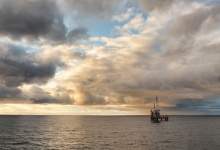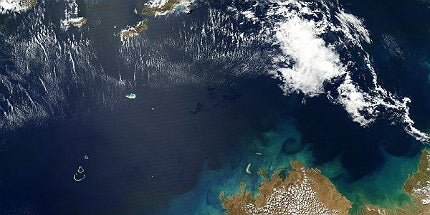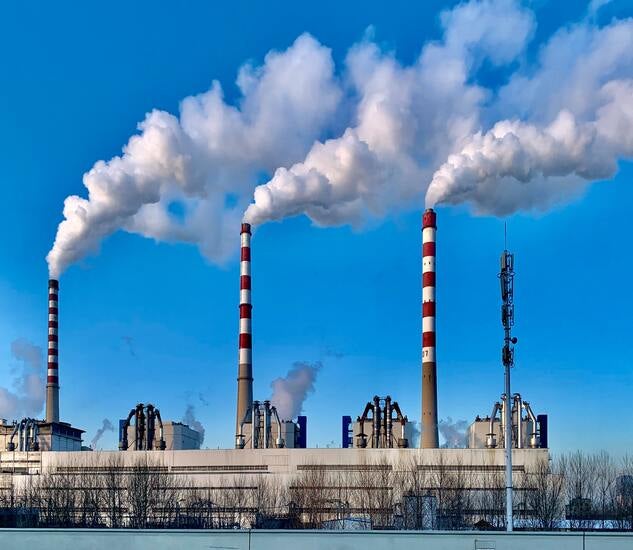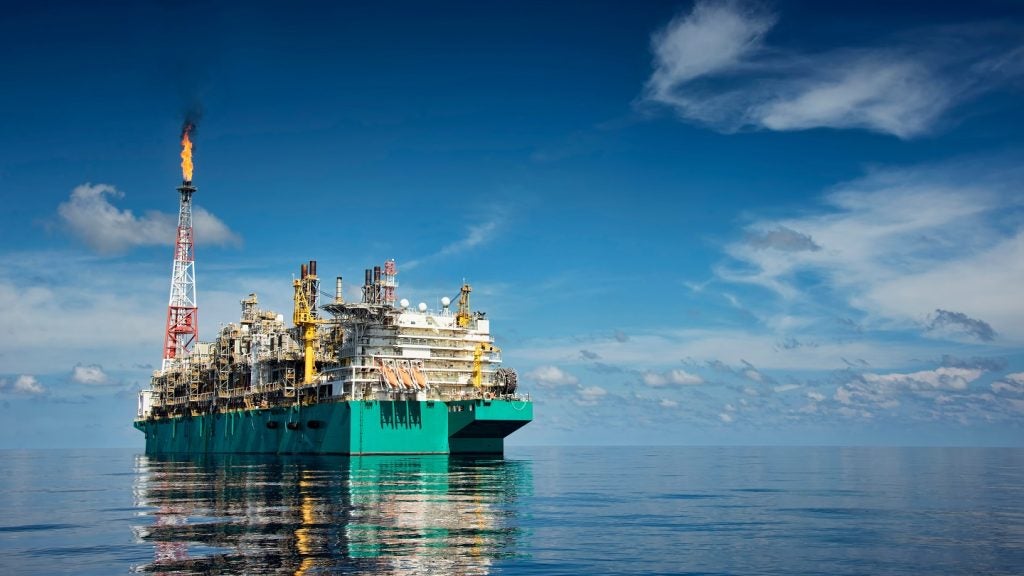

It’s usually leaks on the monumental scale of BP‘s Gulf of Mexico Macondo well spill in 2010 or the on-going Niger Delta oil spills that make headlines. However, although any spill is one too many, in reality these large incidents are far and few between. According to the World Ocean Review, spectacular disasters such as Macondo account for around ten percent of global marine oil pollution.
They may receive the most attention, but large acute spills and leaks are not the only pollution the industry is responsible for, as mandatory reporting from the UK North Sea oil and gas industry reveals.
Operators in the North Sea are required to report any spillage that occurs, whether oil or chemicals. In the last updated publicly available report obtained on the 10 October 2013, it states from the 19th of July to the 19th of August there were 61 recorded spills from platforms into the North Sea, including chemicals such as methanol, calcium bromide brine – which was recently linked to the cause of Total’s North Sea Elgin gas leak – and triethylene glycol.
Although leaked in small amounts – ranging from 0.002 tonnes to 0.4365 tonnes in this particular report – the chronic occurrence of such spills raises concerns the industry is not as safe as it suggests it is.
How well do you really know your competitors?
Access the most comprehensive Company Profiles on the market, powered by GlobalData. Save hours of research. Gain competitive edge.

Thank you!
Your download email will arrive shortly
Not ready to buy yet? Download a free sample
We are confident about the unique quality of our Company Profiles. However, we want you to make the most beneficial decision for your business, so we offer a free sample that you can download by submitting the below form
By GlobalDataSee Also:
Is this all lot of fuss about nothing?
Dr Simon Boxall, a lecturer at the University of Southampton National Oceanography Centre, says chronic spills tend to have a negative effect on surrounding areas over time.
"Our experience has shown chronic pollution can be just as damaging and can have a bigger impact on the biodiversity of an area than acute – acute being an oil tanker or a blow out," he says.
This often presents itself in terms of poor growth of wildlife and minimal biodiversity.
"If you compare, for example, an estuary close to a [oil and gas] terminal that is, say, a mile away; although there is no evidence of a spill, you will find a completely different biodiversity that is very, very limited," he adds.
This is a point echoed by Marine Conservation Institute President, Lance Morgan, who says: "Lots of small spills can have a cumulative impact and at certain times of the year and in certain places different species can be much more vulnerable.
"The developmental phase of most organisms is more vulnerable to toxic effects of oil, for example."
Oil & Gas UK, a representative body for the UK offshore oil and gas industry, disputes this, saying these types of leaks present no significant environmental impact. It says industry and government agencies regularly monitor the environment surrounding oil and gas rigs by measuring levels of chemical contamination in seabed sediments, in marine animals and in the water column.
"The results are compared with international standards and indicate there are no significant environmental impacts arising from either permitted discharges or from spills," a spokesperson explains.
A paper released by the National Pollutant Discharge Elimination System (NPDS) section of US Environmental Protection Agency (EPA), which examines the effect of chemicals used in offshore oil and gas production, goes some way to back up Oil & Gas UK’s stance, but highlights there have been few scientific studies on the issue.
It says analysed chemical profiles and toxicity of several chemical compounds commonly associated with the exploration and production of oil and gas from offshore waters "found only two chemicals (potassium chloride and zinc bromide) present a potential risk" if they were to be spilled in large quantities, i.e a 45,000 gallon spill.
The arctic and vulnerable ecosystems
Nature itself does leak oil into the environment from the Earth’s crust. According to the World Ocean Review this amounts to around five percent of all oil pollution – Dr Boxhall says the environment does deal with this reasonably well.
However he stresses, when considering the impact of hydrocarbon and chemical spill, it is important to consider the nature of the actual contaminant itself and the environment it is going into.
Nearly every discussion about the polluting potential of the offshore oil and gas industry leads to the Arctic – a hyper-sensitive environment that is not as robust as the Gulf of Mexico or North Sea.
Dr Boxhall says these small but frequent spills would have a "far worse effect" in the Arctic.
This is because the quicker oil breaks down in the water the faster it sinks to the bottom, where the damage it causes is likely to be relatively limited.
This breaking down process is influenced by various physical, chemical and biological processes. According to the World Ocean Review it depends on temperature, nutrient content in the water and wave action.
Dr Boxhall explains further: "Scientists have said from the outset, the high proportion of oil disappeared quite quickly [in the Gulf of Mexico] because it broke down in the warm waters; there were all the conditions you would want to dispose of oil."
As the temperature decreases, the less able the oil is to break down, so it does so slower in the North Sea which is ten to 15 degrees cooler than the Gulf of Mexico, as well as shallower, so there is less water mass for it to disperse in. The Arctic is another ten to 15 degrees cooler than the North Sea.
"It’s essentially an oil spill happening in a fridge, which of course slows down natural decay; which means oil spilled in the Arctic won’t break down at the same speed as the Gulf of Mexico," Dr Boxhall adds.
"In winter it is possible you wouldn’t even notice a chronic spill happening beneath the ice, which could be going on for months, and before anyone realises they have thousands of tonnes of oil seeping into the ocean."
What is industry doing to combat this under-highlighted problem?
It’s hard to quantify what kind of short or long term damage such chronic pollution can have, but all agree – industry, scientists and government – that reducing the frequency in which they occur is paramount and industry is achieving a reduction.
Shell points to data which shows the number of its oil and chemical spills has reduced from 83 (93 tonnes) in 2008 to 44 (13 tonnes) in 2012.
This shows an excellent rate of reduction, but these figures will still be shocking to many environmentalists.
Shell says: "No spill is acceptable and we work hard both offshore and onshore to minimise risks. The industry has achieved an almost 50% reduction in hydrocarbons leaks during 2012, based on a baseline set in 2009."
BP, the largest producer in the North Sea with 13 operations, highlights the industry’s commitment to transparency.
"Publication of this data further underlines how transparent the offshore oil and gas industry is, with all releases, no matter how small, reported," a company spokesperson said.
"Our licensed oil discharge to sea in 2011 was only two percent of the industry total."
To combat this problem BP say it is raising spill awareness within operating crews, increasing inspections and reviewing maintenance strategies of equipment that is causing spills to sea. Dr Boxhall agrees the industry has made progress in dealing with chronic spills.
"If we are looking at the industry as a whole today compared to ten to 20 years ago, it is getting better at treating small spills and small incidents with the same concern as an acute spill."
Balancing the pros and cons
Legislation of the oil and gas industry, onshore and offshore, has always been about balancing its pros – it feeds the world’s insatiable need for fossil fuels – at the risk of creating harm to the environment.
Although it’s hard to quantify the real and long term effect of these chronic spills, they are, fairly it seems, in the North Sea and many other places balanced out by the growing need for fossil fuels.
The pressing question is whether this balance can be struck in exceedingly fragile environments such as the arctic and, for the moment at least, data like the spills above seems to show there are very real reasons for concern.
Even as the industry’s spill record continues to improve, as Dr Boxhall says: "We will always see incidents and we’re going to be very naïve if we believe that any system is fail safe, and this is where the problem is with the Artic."
Related content
Could oil and gas exploration be harming whale populations?
Many are concerned the industry could somehow be responsible for causing the unnatural death of whales.
Be prepared – risk management for the offshore oil industry
The BP Macondo spill highlighted the importance of comprehensive risk management procedures for oil and gas operators.



.gif)



